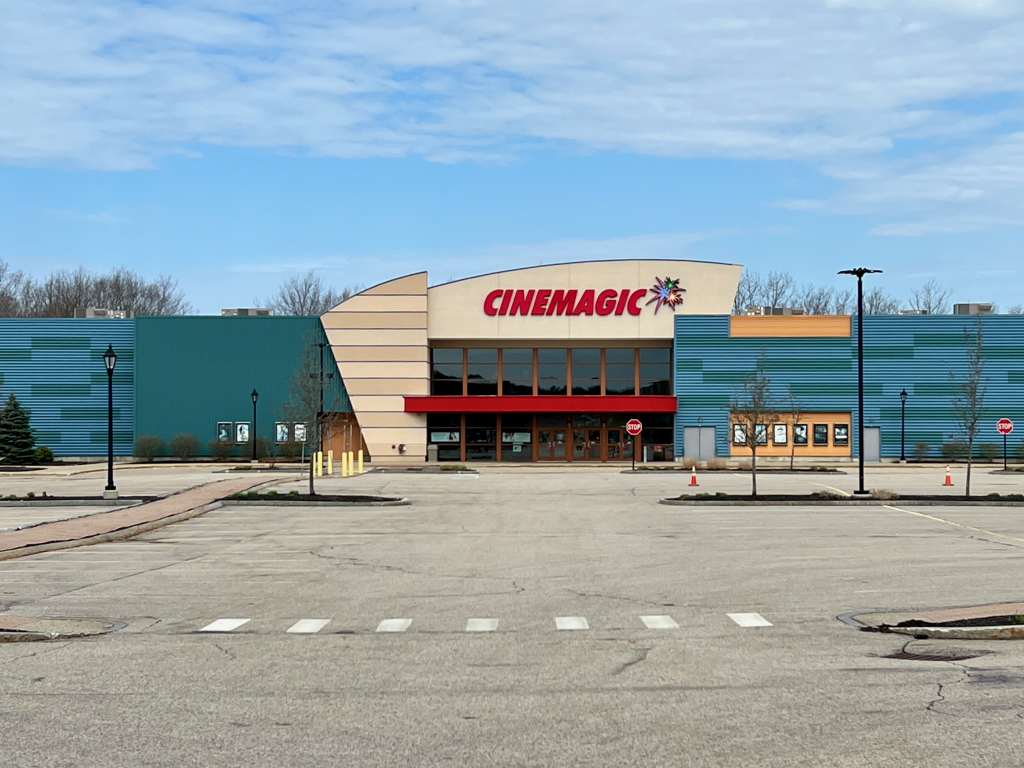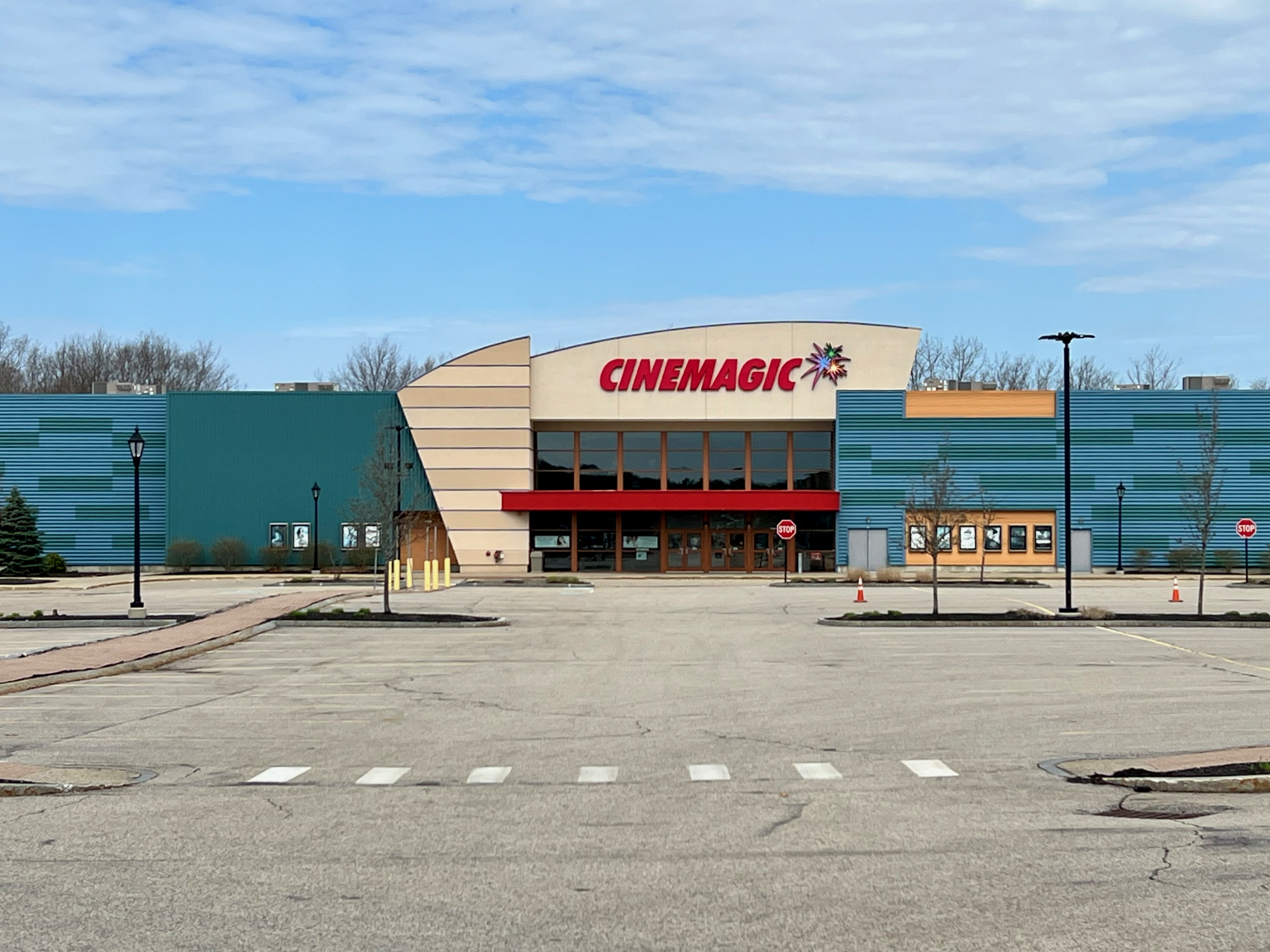By Buck Fuller
Here’s the (Back Room) Deal
Imagine you are a developer (not all developers are bad!!) and you own the Cinemagic property at 2454 Lafayette Road. You saw, especially during Covid, that no one wanted to go to the theater. You need a vehicle to turn this property around to make some money again. How about turn it into condos?

You know that the City is eager to create workforce housing. As a sweetener to get the development permits you want from the City, you anticipate offering to sell 20% of the condos as workforce housing. In exchange, you hope to get approval for a 5-story building, one more than the zoned 4-story height limit.
This is your starting point as you work with the City’s land use boards. Along the way, you take the “incentives” the City has to offer, for height, density and parking and you agree to build and sell the 20% workforce housing at the rates defined as “affordable” by the State of New Hampshire’s RSA 674:58 IV. You believe this project will be a win for everyone. You follow the standard process with the Planning Board and go through the give-and-take of getting the variances necessary to build the condos you want to sell. On December 30, 2021, the Planning Board grants you a conditional use permit (CUP).
Your CUP is a 50-year agreement that gives you that fifth floor in height. In exchange, you get 95 units. Twenty percent (20%) would be workforce housing, something that is highly sought after by politicians. It will be a feather in their cap come Election Day.
The workforce housing would be built and marketed under state law, RSA 674:58 IV. This requires that the condos be SOLD at no more than 100% of the area median income (AMI), for a 4-person household.
Two Years Later, You Have Second Thoughts
In late 2022, the real estate market has changed. You’ve looked at the workforce housing numbers more closely. You now have experience at another Portsmouth property you developed on Cate Street known as West End Yards and you note many of those West End units are for rent, not for sale. If you can rent the 95 units at Cinemagic instead of selling them, you might make more money annually, especially if you can change the terms for your Cinemagic project.
So now you propose to keep the 100% AMI applicable to units for sale and apply it to a 3-person household for rent. And instead of accepting the state-mandated 60% of AMI for a 3-person household for apartments for RENT, you do your sleight-of-hand and keep the 100% of AMI! Voila! You get an annual pick up of $41,904 of income per unit for a 3-person family household rental unit.
Since you developed Cate Street and you are now developing Cinemagic and since you have the same attorneys writing the “Covenant” for both properties, you figure maybe you can just run this through the City Manager for final approval. That would avoid the Planning Board. Since Cinemagic is “like” what you did at your West End Yards project, you can rely on precedent (sort of) by referring to what you have used at your West End Yards project as a template and call it the “Cate Street Development Apartment Rental Covenant.”
You believe the City staff can help get approval without “bothering” the Planning Board.
Not So Fast
On cue, on April 3, 2023, the City Manager proposed that the City Council approve a revised application previously approved by the Planning Board which originally had been compliant with the workforce housing provisions of RSA 674:58, IV. The revisions would change the units for sale to units for rent but they would continue to apply the “for sale” 100% AMI to the rental units.
But in reality, because the units will no longer be sold, but rather be rented, RSA 674:58 IV stipulates that the AMI would have to drop to 60% of AMI for a 3-person household.
No big deal. As you expected, IN THE NAME OF CIVILITY, this City Council doesn’t challenge the City Manager. They know they are supposed to go along to get along. So, they vote to approve what she asked, 9 to 0. Yes, the City Council approved the “bait and switch” two years after the Planning Board approved the original permit. Because of the changes, they in fact approved a far different permit application, changed to meet the developer’s updated profit needs. These changes violated New Hampshire laws’ workforce housing definitions.
What should have happened was that this revised application should have gone back to the Planning Board for a rehearing. A new CUP would be a part of the rehearing. In other words, the rehearing would start from the beginning.
The Challenge
On April 17, 2023, Msrs. Huda and Kennedy challenged the developer’s “bait and switch” covenant presented by the City Manager to the City Council on April 3, 2023. Msrs. Huda and Kennedy made a public request that the City follow New Hampshire statutes and to rescind the April 3 vote that gave City Council approval for the inappropriately revised application for Cinemagic. Unfortunately, their public request was set aside in its entirety by the City.
That’s when the City’s obfuscation machine kicked into high gear. Approximately two weeks later, on May 4, 2023, a letter was delivered to Msrs. Huda and Kennedy. It was signed by the Mayor and stated that Msrs. Huda’s and Kennedy’s request for a rehearing by the City Council was denied. The City Council’s vote was simply “the ministerial act of accepting a workforce housing covenant previously approved by the Planning Board.”
Except in Cinemagic’s case there was NO covenant and the revised application was NOT approved by the Planning Board. If the City can confuse things badly enough, no one will know what’s going on.
Remember, though, that the City was dealing with Msrs. Huda and Kennedy. Thank goodness. After the Mayor’s denial, and then following the process outlined in RSA 677:2-677:4, Msrs. Huda and Kennedy, who are not attorneys, were left with no other avenue for relief. They took their grievance to Superior Court. On May 30th, 2023, they filed a petition with the Superior Court. The hearing date was set for July 5, 2023, before Judge Lisa M. English.
The Judge Was Having None of This
First of all, the City tried to knock out the Huda and Kennedy challenge based on standing. This has become such a hackneyed strategy by the City. Here, both Msrs. Huda and Kennedy were Councilors when the Planning Board had given its approval back in 2021. The Judge agreed to review the case law, ultimately concluding that since they were City Councilors at the time, Msrs. Huda and Kennedy did have standing.
Secondly, the covenant the City referred to was for the development on Cate Street, not 2454 Lafayette Road. Lawyers love to call on precedent, but it doesn’t work if it’s not related to the matter at hand!
Thirdly, the sleight-of-hand the developer and the City Manager tried to pull on the City Council would be an end run around the Planning Board. They tried to get the Council’s legislative approval for a revised plan that had never been approved by the Planning Board.
Fourthly, the City Manager, Mayor and City Council displayed their contempt for workforce housing by trying to approve the revised plan which misapplied the income standards for ownership with those for rentals. So much for the hypocritical pronouncements about how important workforce housing is when the City Manager and the Council can do a few favors for their friends.
Lastly, City Attorney Morrell, who is an experienced criminal law attorney by training and who was hired by the City at the sunset of her career to pick up a nice retirement package from the City, threw Attorney John Bosen under the bus. She stated that any misrepresentation and any drafting errors that caused such confusion were due to his errors since the developer’s attorney ordinarily prepares such covenants.
The Judge listened intently as Attorney Morell finally then admitted responsibility for various errors in the document presented to the City Council. Attorney Morrell quickly stated that these errors “will be corrected prior to the City Manager signing the ‘real’ covenant for the 2454 Lafayette Road.”
In making these statements, Attorney Morrell tried to minimize the fact that the City Manager had urged City Council to adopt and approve an error-ridden permit application that was not compliant with New Hampshire law. The Judge recognized the City’s infringement of New Hampshire law as well as the poor judgement of City staff.
Fix This Pronto
In response to this, the Judge ordered that these issues be resolved within three weeks. Msrs. Huda and Kennedy and the City have until July 26, 2023 to reach an agreement to resolve these issues. If it’s not done, the Judge will step in and “address” the matter. The Judge in essence recognized the severity of the issues raised by Msrs. Huda and Kennedy and told the City to respond favorably.
David 1, Goliath 0










